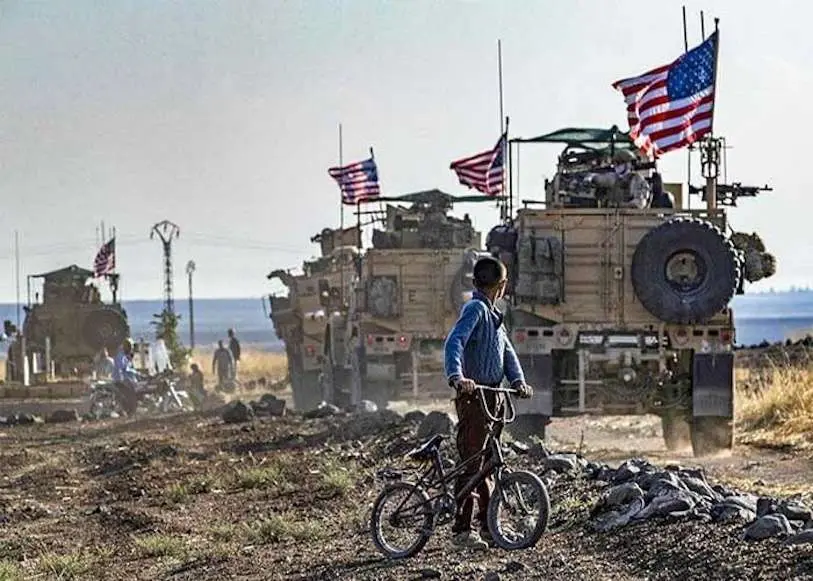Recomposition in the explosive Middle East

Will Joe Biden's America reoccupy the place it abandoned in the Middle East, first with Barack Obama and then with Donald Trump? Almost certainly not. Washington's withdrawal from what is considered the hottest region on the planet may be considered irreversible, so that both the powers that aspire to discuss American hegemony - China above all, and Russia - and the countries of the region act on that conviction.
The first to realize such a fundamental change were Israel and the United Arab Emirates, whose peace and cooperation treaties represent a decisive strategic turnaround. Certainly, their trade relations provide an extraordinary boost, which will also extend to scientific cooperation. But in the short term, perhaps the most important thing for both signatories is their willingness to pool the efforts of their respective intelligence services and special forces. Both have a common adversary in Iran and in the Muslim Brotherhood, and have concluded that the United States does not guarantee their security as in the past.
One year after having executed General Soleimani, the architect and strongman of that army within the Iranian army that is the Revolutionary Guard, the Iranian regime does not show any sign of giving up its aspirations not only to control, through its terminals, Iraq, Lebanon or Yemen, but also to discuss the Saudi preponderance regarding the holy places of Islam.
The cascade of recognitions of Israel from the agreement with the UAE has only shaped this new strategy, in which the United States provides its verbal support and its weapons counter ready to be sold, but where the real protagonists are those directly affected by the geopolitical turnaround. Washington blesses and the others act. The latest cases are Morocco, recognized by President Trump as the legitimate owner of the former Spanish Sahara; Sudan, removed from the blacklist of countries that support terrorism; or Bahrain, whose questionable respect for human rights is indulgently ignored by official US observatories. All this, in exchange for official recognition of Israel.
Resurgence of the great traditional actors
If the Middle East has traditionally been a difficult to govern and control hornet's nest, since last year this feeling has been accentuated. Among the most powerful countries in the area that have also become aware of America's weakness and its notorious willingness to withdraw, we must highlight Turkey, which has finally decided to embrace its secular expansionist trend. President Erdogan has consolidated his power and exhibits sultanic ways after resettling in the northern strip of Syria, from where he recruits, trains and relaunches mercenary units for his interventions in Libya or the Caucasus. Ankara has embarked on a path of true loose verse within NATO, aware both of its own power and of its need to act in its own interests with respect to Russia or Iran.
In addition to Egypt, which is also willing not to let itself be minimized in its role as the great cultural power of North Africa, Saudi Arabia does not renounce either to be the main power in the Gulf, for which it does not spare in military investments, while it offers to the world the lure of a gradual cultural opening although without giving up one millimeter in its Wahhabi religious rigor.
A board from which the supposed great common cause of the Muslim world has disappeared: the Palestinian one. If the United States was, since the first Israeli-Arab war, the hyperpower that would find and guarantee in the medium term a solution to the Israeli-Palestinian problem, Trump has certified the demise of such a belief. This will mean that it will be the new actors who will carry out the design of the future of the Palestinian people. The Palestinian people, after having lost several trains that will not pass again, will have to return to the negotiating table, although now very weakened after the consolidation of the fait accompli, but convinced, that Washington has ceased to be its defender, for the sake of whose strength it could contain Israel, and supposedly act as an intermediary.
It also happens that this void left by the United States, which is capable of providing overall solutions since it is above all the contenders, does not seem to be filled by Russia or China. The former has once again set foot in the area through its intervention in Syria, but it has nowhere near the capacity to set itself up as a global peacemaker. As for China, for the time being its aspirations are limited to become the first economic power of the planet, which of course is not little. But, from there to becoming a global arbiter is a very long way off, which does not seem to be going to be completed until at least the middle of this century.
With these variables, the truth is that it cannot be ruled out that attacks, skirmishes more or less bloody and devastating end up reinflaming the region. But, in such a case, who will be above the melee to reprimand the parties and cool down such hell? It would not be a few of us who would be tempted to answer that the European Union. Because of its values and its economic and commercial strength it would be the possible great actor capable of succeeding the United States in that role, especially because of its soft power. However, it lacks the corresponding complementary military power, and it is clear that it should consolidate itself as the great power that it should logically be.

